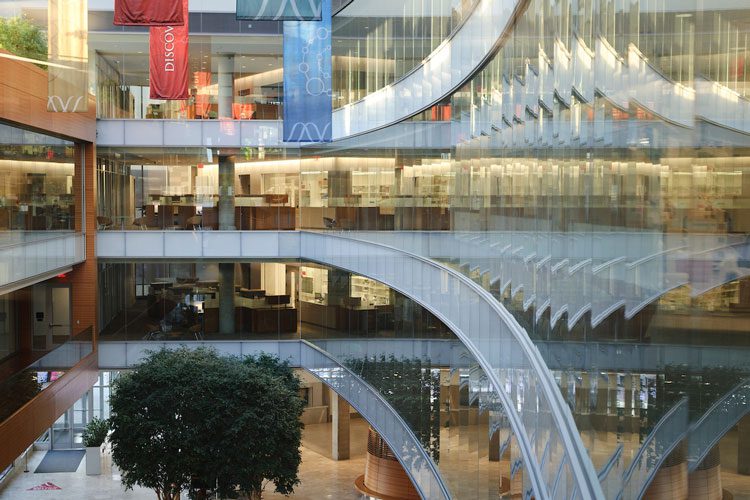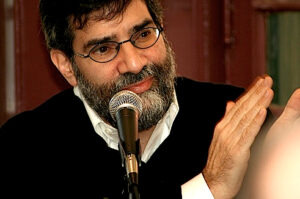
The debate about Massive Open Online Courses (MOOCs) is ubiquitous. From Inside Higher Ed to the New York Times, broad proclamations have been made about the technology’s impact on education. Yet, many educators are unsure about the new technology and how it fits in within the traditions of learning at the University of Wisconsin-Madison.
On Friday, the Wisconsin Institutes for Discovery hosted a day of discussion and presentations about the creation of MOOCs and the resulting online communities. The event was sponsored by the Division of Continuing Studies, DoIT Academic Technology and Educational Innovation.

Speakers at the MOOC event included University of Pennsylvania Professor Al Filreis, who shared his experience building the massively popular MOOC Modern & Contemporary American Poetry (ModPo), which is based on an English course he has taught for thirty years.
In his keynote speech, Filreis emphasized the power of an engaged community within an online course. But, he wasn’t always a believer. He admits to being skeptical of crowd sourcing content.
“Then I taught ModPo,” said Filreis, who plans to incorporate student videos next year. “The crowd is wise. They need structure and open-ended materials, but they can do great things.”
The event also featured a panel of online education experts who discussed the opportunities and challenges of creating community within a MOOC.
The Director of Digital Learning Initiatives at Stanford University Amy Collier< spoke hopefully about the future of online courses.
“MOOCs have also made salient the opportunities that online and digital learning afford to instructors and learners, particularly in academic contexts where digital learning has not been part of the conversation until now,” Collier said. “This is an important moment to seize — to take advantage of the attention on MOOCs to talk about the possibilities of transforming our classes and our universities.”
Sean Michael Morris, the editor of Hybrid Pedagogy, shared his experience of creating an online course about teaching online — yes, a MOOC about MOOCs — with UW-Madison Assistant Professor Jesse Stommel.
“I had no idea where it was going, and this amazing community grew out of it,” Morris said. “We as teachers need to be okay with not knowing where a MOOC is going or what it becomes. You have to allow the community to create itself.”
Other members of the panel included Bonnie Stewart, a lecturer and doctoral candidate from the University of Prince Edward Island; Geography Professor Kris Olds from UW-Madison; and Filreis.
On January 26, 2015, UW-Madison launches its second set of MOOCs with “The Land Ethic Reclaimed: Perceptive Hunting, Aldo Leopold, and Conservation.”